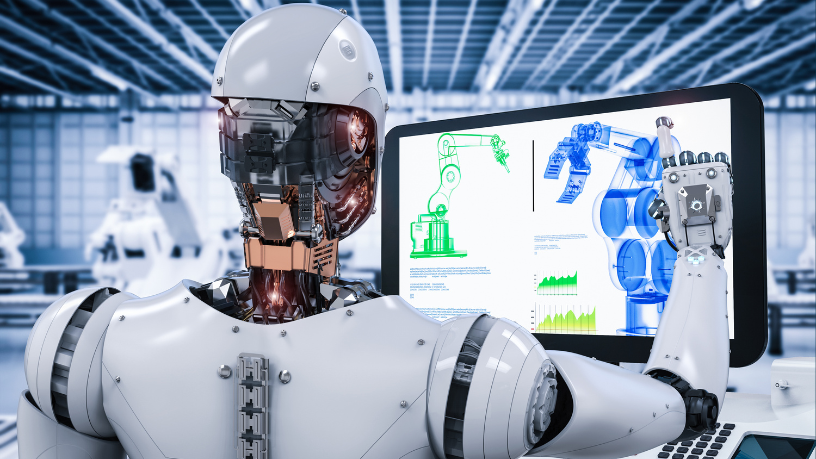The impacts of artificial intelligence on employment have become a growing concern around the world. As technology advances at a rapid pace, especially with the emergence of generative AI, entire sectors are being redefined. What was once considered exclusively human labor is now being replicated by machines that learn, process, and make decisions autonomously. The debate is no longer about whether AI will affect jobs but rather which sectors will be most impacted and how society will adapt to such profound and irreversible changes.
Among the most significant impacts of artificial intelligence on employment is the gradual replacement of roles previously safeguarded by their intellectual complexity. Positions such as data analysts, writers, programmers, and even lawyers now face real challenges posed by intelligent automation. Modern AI can write reports, review contracts, and even suggest decisions based on large volumes of data with greater accuracy and speed than human capacity. This has raised concerns among highly qualified professionals who were once considered immune to automation.
Beyond technical professions, the impacts of artificial intelligence on employment also affect the service industry, including customer service and administrative support. Natural language software can now interact with customers, understand requests, and solve problems without human intervention. While this reduces company costs, it also eliminates jobs on a large scale. The workers most affected often lack the technical training to transition into more specialized fields, further deepening existing inequalities.
Recent studies show that the impacts of artificial intelligence on employment are being felt differently across social classes. While tech executives see AI as a strategic ally for boosting productivity, a large part of the population fears losing their jobs or being forced to reinvent themselves in a short period of time. This anxiety is intensified by the lack of clear public policies and guidance for navigating such a transition. Many governments are still evaluating the issue and have yet to offer practical solutions.
However, it is important to note that the impacts of artificial intelligence on employment are not exclusively negative. AI has the potential to create new opportunities, especially in areas such as data analysis, systems engineering, algorithm training, and tech ethics. The emergence of these new roles could offset some job losses, provided there is investment in retraining and accessible education. Ensuring that this transition is inclusive will be crucial in distributing opportunities more fairly across the workforce.
The education system will also need to adapt to the impacts of artificial intelligence on employment. Traditional teaching models that emphasize memorization and repetition are increasingly outdated. Skills such as critical thinking, creativity, complex problem-solving, and communication are now more valued than mere technical knowledge. Updating curricula and promoting lifelong learning will be essential strategies for preparing new generations for a constantly evolving job market.
Companies of all sizes are already addressing the impacts of artificial intelligence on employment within their organizations. Some are offering training programs to reassign employees to new roles, while others are opting to downsize and invest directly in automated solutions. These decisions influence company culture, productivity, and how leadership views human capital. Balancing efficiency with social responsibility will be one of the biggest corporate challenges of the coming decade.
In conclusion, the impacts of artificial intelligence on employment are inevitable and require immediate action from governments, companies, and individuals. Ignoring this reality could lead to social and economic crises. Strategic planning, educational investments, and inclusive policies are essential for a fair and balanced transition. If managed wisely, the AI revolution can boost productivity, reduce inequality, and reinvent the job market for the better. If poorly handled, it could widen social gaps and endanger the livelihoods of millions worldwide.
Author: Bergezin Vuc







